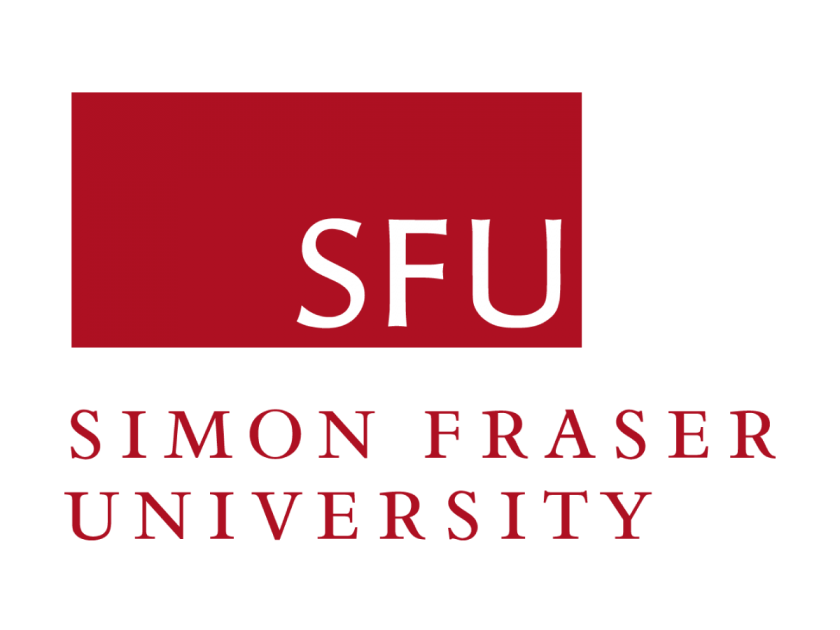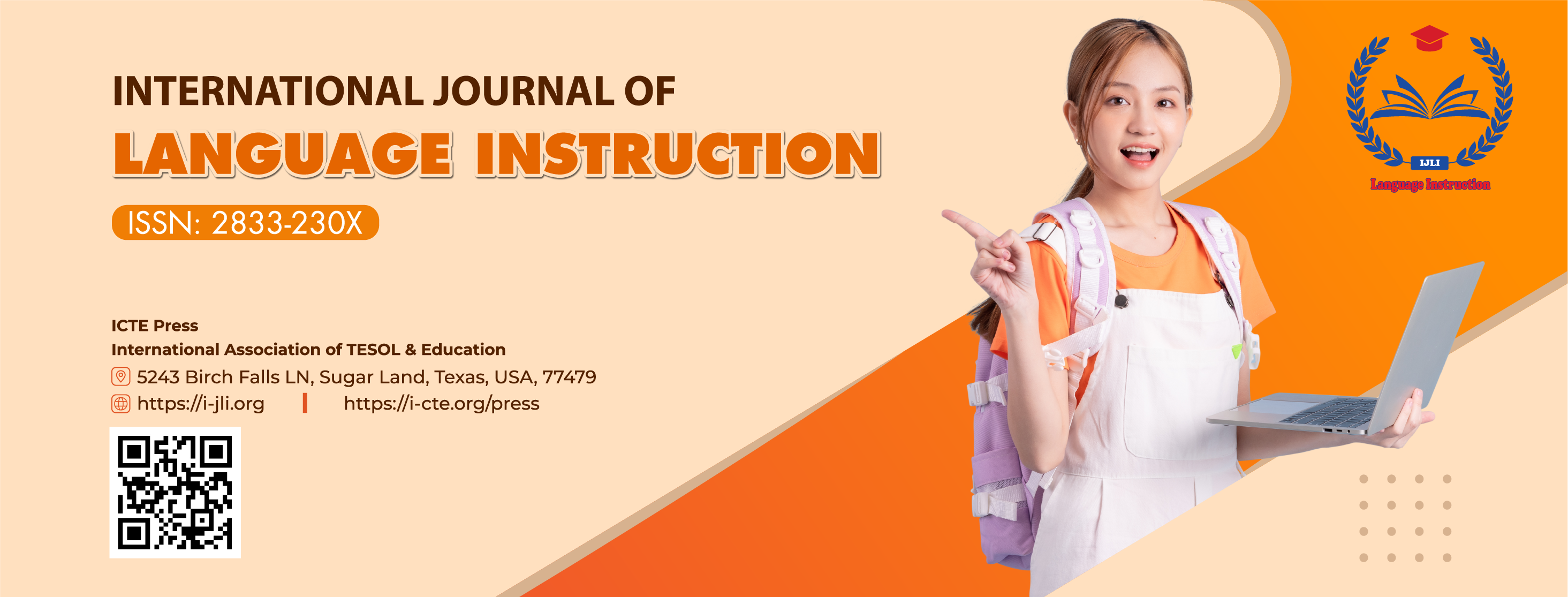A Study on Adult Learners of English as A Foreign Language in Vietnam: Motivations, Advantages, and Challenges
DOI:
https://doi.org/10.54855/ijli.24313Keywords:
English as a Foreign Language, Adult learners, learning difficultiesAbstract
English has become highly popular in Vietnam, emerging as the preferred language for diverse purposes. The increasing attendance at English Training Centers and schools shows a surge in adult learners seeking language refinement. Motivated by career progression, job prerequisites, learning objectives, and communication needs, these learners encounter many difficulties. This article explores the obstacles Vietnamese English as a Foreign Language (EFL) learners face, providing practical solutions for both learners and educators. A comprehensive study involving 70 adult learners studying EFL at the University of Danang - University of Foreign Language Studies (UD-UFLS) utilized questionnaires and interviews, employing qualitative and quantitative analyses. The research revealed that despite high motivation driven by job and career goals, learners struggle due to time constraints, limited English literacy skills, and financial burdens, diminishing the effectiveness of their learning. In response to these difficulties, constructive recommendations are offered to enhance the learning experience and address the prevalent issues.
References
Adam, M. A. A. (2016). Role of Vocabulary Learning Strategies in Promoting EFL Learners Performance (Doctoral dissertation, Sudan University of Science and Technology).
Anh, N.Q.P. (2021). Under the impacts of globalisation: the rising power of English as a foreign language (EFL) and the corresponding response of EFL policy in Vietnam. SN Social Science, 1(31). 11 January, 2021. http://doi.org/10.1007/s43545-020-00047-9
Brookfield, S. D. (1986). Understanding and facilitating adult learning. San Francisco: Jossey-Bass.
Deborah.S., Lori, K. & Salwa, M. (2018). Teaching strategies that motivate English language adult literacy learners to invest in their education: A literature review. Literacy and Numeracy Studies, 26(1), 25-42. https://doi.org/10.5130/lns.v26i1.6260
Jiuhan, H., Evie, T. & Deanna, N. (2011). Authentic Activities and Materials for Adult ESL Learners. Journal of Adult Education, 40(1), 1-10.
Krashen, S. D. (1988). Principles and practice in second language acquisition. Oxford: Pergamon Press.
Lenneberg, E. H. (1967). The Biological Foundations of Language. New York: Wiley.
Lieb, S. (1991). Principle of Adult Learning. Phoenix, AZ: Vision – South Mountain Community College.
Mali, G. C. Y. (2017). Adult learners' experiences in learning English: A case study of two university students in Indonesia. JOLTL: Indonesian Journal of Language Teaching and Linguistics, 2(2),131-146. http://doi.org/10.30957/ijoltl.v2i2.280
Mei, B. (2022). The Characteristics of Adult Learners and Second Language Teaching Strategies. Chengdu 610037, SEAA 2022, 675, 980–987. 2023. Sichuan, China. http://doi.org/10.2991/978-2-494069-05-3_117
Mihaela, C. (2015). The Challenge of Teaching English to Adult Learners in Today's world. Procedia - Social and Behavioral Sciences, 197(1209-1214). July 25, 2015. https://doi.org/10.1016/j.sbspro.2015.07.380
Nguyen, T. N. Q. (2022). Vietnamese standardized test of English proficiency: A panorama. English Language Proficiency Testing in Asia. 1st Edition. Routledge. 2019.
Phan, T. T. Q. (2023). EFL Students’ Perceptions towards Cooperative Learning in Writing Skills at a University in the Mekong Delta. International Journal of Language Instruction, 2(3), 48–62. https://doi.org/10.54855/ijli.23232
Ruijuan, W., Ruiting, W. and Tai, V. L. (2014) Challenges of Adults in Learning English as a Second Language: Focus on Adult Education in China. Journal of Language Teaching and Research, 5(5), 1132 –1138. September, 2014. http://doi.org/10.4304/jltr.5.5.1132-1138
Ruyun, H. (2016). The age factor in second language learning. Theory and Practice in Language Studies, 6(11), 2164 – 2168. http:/doi.org/10.17507/tpls.0611.13
Svetina, M., & Perme, M. (2004). Adult Learner – 1st Module. Retrieved August 28, 2019 from http://arhiv.acs.si/publikacije/Adult_learner-1st_module.pdf
Tight, M. (1996). Key concepts in adult education and training. London: Routledge.
Tuong, H. G. B. (2022). TVU Non-English Majors’ Attitudes toward Utilizing Oral Presentations to Overcome Speaking Difficulties in English Classroom. International Journal of Language Instruction, 1(1), 99–119. https://doi.org/10.54855/ijli.22119
Downloads
Published
Issue
Section
License
Copyright (c) 2024 Nguyen Le An Phuong, Nguyen Thi Hoang Bau

This work is licensed under a Creative Commons Attribution 4.0 International License.
The copyright of all articles published in the International Journal of Language Instruction (ijli) remains with the Authors, i.e. Authors retain full ownership of their article. Permitted third-party reuse of the open access articles is defined by the applicable Creative Commons (CC) end-user license which is accepted by the Authors upon submission of their paper. All articles in the ijli are published under the CC BY-NC 4.0 license, meaning that end users can freely share an article (i.e. copy and redistribute the material in any medium or format) and adapt it (i.e. remix, transform and build upon the material) on the condition that proper attribution is given (i.e. appropriate credit, a link to the applicable license and an indication if any changes were made; all in such a way that does not suggest that the licensor endorses the user or the use) and the material is only used for non-commercial purposes.
Authors are able to enter into separate, additional contractual arrangements for the non-exclusive distribution of the journal's published version of the work (e.g., post it to an institutional repository, in a journal or publish it in a book), with an acknowledgment of its initial publication in this journal.











